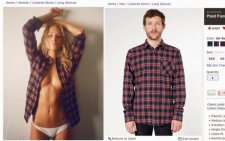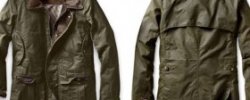I like you, American Apparel. I enjoy your scoop-neck container tops, your $26 tube dresses, your clothes—even your metallic leggings. I love that whenever We walk-through your neon lights and white walls I feel as if i am in a Terry Richardson image shoot, and therefore your employees—all clad in pipe socks and aviator glasses—stare straight back at me personally, vacuous and wide-eyed. I enjoy that i could use your clothes to sort out in the morning, into the workplace throughout the day, out for dinner through the night and to bed—no shower needed.
But somehow, sweet United states Apparel, you make myself question you, time and time again. I get it: you're edgy, you're hot, there is no-one to resist you. But it seems like every-where we turn I see you objectifying women exactly like me—except that they are half-naked, in limiting positions. You photograph them on the ground in nothing but a thong, hands-down their pants. And I cannot determine easily should slap you for exploiting all of them, or congratulate you for these types of a cutting-edge advertisement promotion.
Take to Newsweek: Subscription offersI truly got to considering our commitment last week, after an anonymous tagger spray-painted the enormous billboard that rests near my apartment in downtown Manhattan. It had been difficult to miss: a young-looking woman, shirtless however in tights, bent over along with her feet distribute, dark hair spilling down the woman back. Even harder to miss when a person wrote, "GEE, I QUESTION WHY LADIES GET RAPED" over the front of it. Offensive? Possibly. But possibly smart, also. A woman never ever requests rape, but some would say that flaunting a model this kind of a vulnerable place could feed into that sordid interpretation. "It is basically like, 'discover my a-, f- me', " if you want to be since blunt as you possibly can, says Steve Hall, the creator of Adrants, a marketing blog site.
The debate over United states Apparel marketing and advertising isn't an innovative new one, naturally. The organization made a name for it self mostly on its amateur-porn-style ads filled with crotch shots, sweat spots and bikini rashes. (One advertisement i recall even urged buyers to Google the design, only to discover she ended up being a rising Canadian porn star.) On its webpage the organization states up front its track record of "provocative photography"—in addition to comfortable clothing—and the company's founder, Dov Charney, is in impact the Ron Jeremy for the T-shirt globe. (Charney takes their characteristic snapshots in various states of strip himself, he when revealed himself to a reporter from Jane, in which he has had several previous staff member file a sexual harassment suit against him.)









